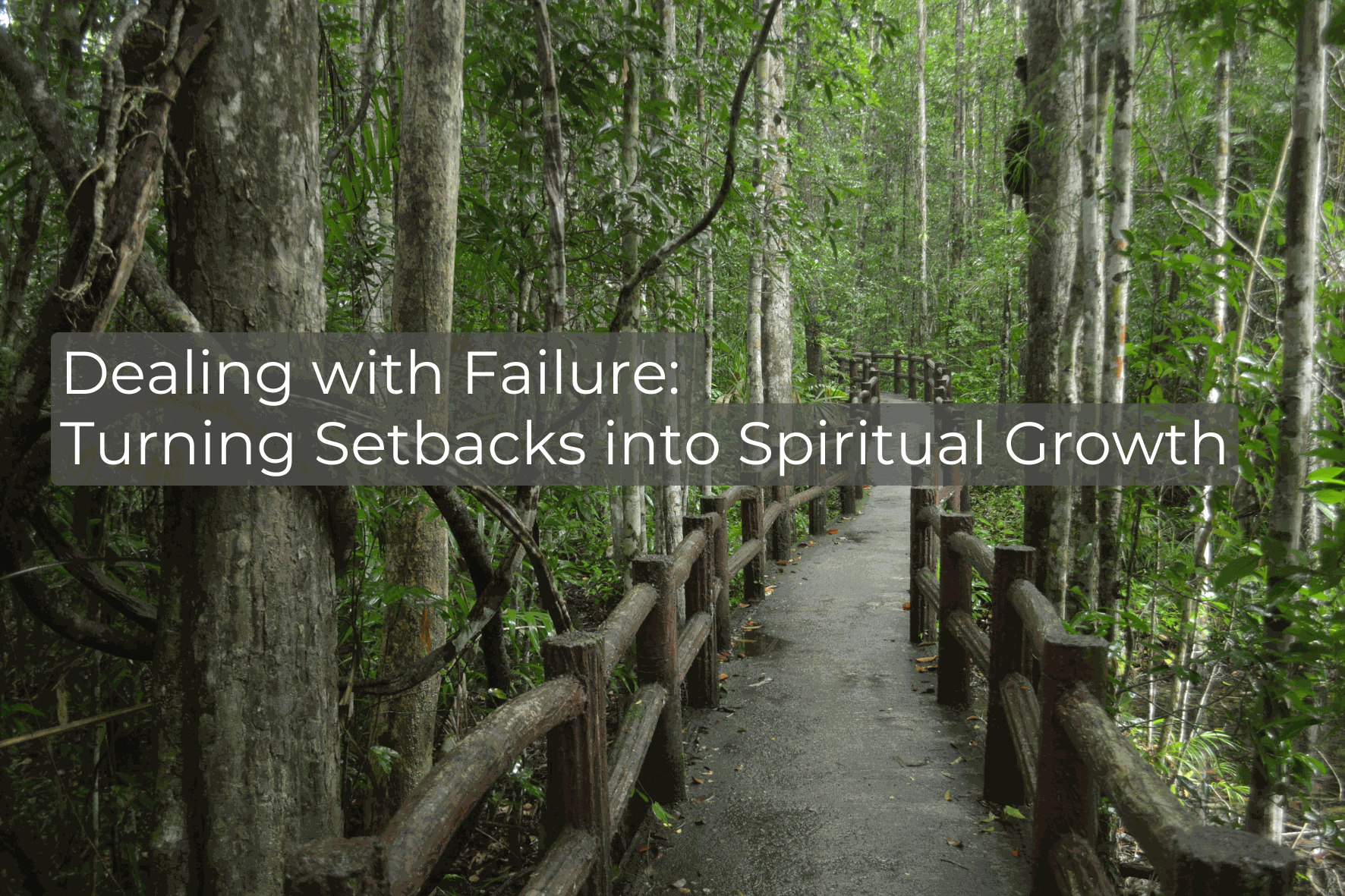Dealing With Failure: Turning Setbacks Into Spiritual Growth

Some mornings, you wake up to the sounds of birds chirping, a morning sky filled with warm sunshine, and you think to yourself, “It’s going to be a great day!”
You make a cup of coffee and a slice of toast before logging into your email, feeling hopeful about the news you’ve been waiting for: an exam result, a job interview, a project update, or a message from your partner. But the message doesn’t arrive. Or worse, it does, and it’s not what you hoped for.
You feel a lump in your throat. After all, rejection is part of life, right? You tell yourself to move on. In the silence, your mind seems to take on a life of its own, replaying the moment repeatedly, searching for where things went wrong. In those moments, it’s easy to slip into despair, to question your self-worth, or wonder if trying again is even worth it.
Failure, especially in a culture obsessed with achievements and results, can seem like a personal defeat, and for some, it can feel like the end of the world. But what if we saw failure not as the end but as a kind of threshold? A place to pause, reflect, and return to ourselves with a bit more tenderness and wisdom?
Failure is Part of the Journey
We may think of failure as a detour, a sign that we’ve gone off course, or even a dead end. However, from a Dharma’s perspective, the journey toward growth, whether spiritual or worldly, is rarely a smooth or straight path. It’s filled with doubt, disappointment, and the sting of unmet expectations.
Even the Buddha encountered failure on his path to enlightenment. He endured starvation, disillusionment, and deep uncertainty during years of harsh self-denial. Through those struggles, he came to realise that awakening comes not from suffering itself, but from clarity and balance.
Failure isn’t the end. It’s an invitation to pause, reflect, and refine your path.
Buddha taught us to see life as it truly is: impermanent yet interconnected. In this light, failure is not a flaw or a punishment; rather, it is part of the human experience. What matters is how we respond to it.
Whether it’s a failed exam, a missed opportunity or a broken relationship, these are all part of life’s chain of events. When we take a step back, we realise they don’t define us. Pain is inevitable, but suffering happens when we resist it.
The Weight of Attachment
Why does failure hurt so much? Often, it’s because of the expectations we carry and the way we’ve been taught to define success. In a culture that prizes performance and productivity, we learn to link achievement with identity — good grades mean we’re smart, a job offer means we’re worthy, recognition means we matter.
But underneath it all, the ego craves validation by clinging to things that are temporary and changing. So when things fall apart, we don’t just lose a dream or what we’ve built; we feel like we’ve lost ourselves.
In Buddhism, attachment is believed to be the root of suffering. Not because it is wrong to desire, but because holding on tightly to specific outcomes creates inner tension. When we tie our sense of self to results, any setback feels like a personal failure.
Letting go isn’t about giving up or caring less. It’s about not letting goals or expectations control you, while giving space for change and surprise. It’s embracing life as it unfolds, and not just how we wish it would be.
The Power of Self-Compassion
Many of us are quick to extend kindness to others but harsh with ourselves. Especially in moments of failure, the inner critic tends to scream: “You should have done better.” “Why can’t you get it right?” We see mistakes as proof of inadequacy.
Why do we condemn ourselves like that when all it does is cause more pain? What we need instead is compassion, especially toward ourselves.
In Buddhism, compassion begins within. Instead of pushing through pain with gritted teeth, it invites us to pause, breathe and acknowledge: This is hard. I feel hurt. And I am still worthy of love. Self-compassion is recognising that to be human is to be imperfect. We all make mistakes, and it’s important to be gentle and honest with ourselves without feeling ashamed or punishing ourselves. Suffering is a universal part of the human experience, and we don’t have to go through it alone.
When we are kinder to ourselves, failure feels less scary. And growth begins, not from pushing too hard but from a more patient place.

